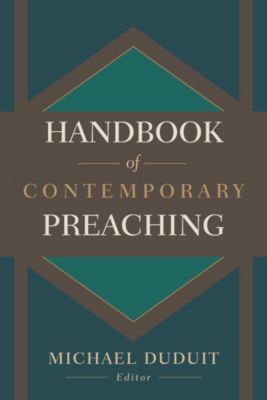
These seven preaching principles can guide us in our quest to speak to the sheep we’ve been called to shepherd.
By Steven Blake
I recently went to the doctor due to an unusual amount of headaches. She did the usual checkups on my blood pressure, heart rate, and sugar levels. Then she asked me the probing questions concerning stress, diet changes, and any common denominators that might bring on the headaches. Of course, the next step was lab work. When my lab work came in, she consulted with other doctors on staff to gain their insight. And with all the information gathered, she was able to make a diagnosis.
As we consider preaching to the people in our pews, we can think of ourselves like a doctor of sorts. But instead of diagnosing a physical ailment, we are trying to understand our congregation’s spiritual maladies. It is vital we preach to the needs of our people.
This begs several questions. How do we best determine our sermon topics for each week? How do we discover the needs of our people? What does that look like in the different settings we find ourselves in? These seven preaching principles can guide us in our quest to speak to the sheep we’ve been called to shepherd.
1. Spend time in prayer
This may sound trivial to some, but how much time do we spend seeking God’s face concerning our direction in preaching? As ministers in our churches, we pray about many things. Praying concerning our sermon preparation should be top on our list for the church we are called to shepherd. If we understand our role as undershepherds of the Great Shepherd, then we understand He knows our people better than we can know them.
“If we understand our role as undershepherds of the Great Shepherd, then we understand He knows our people better than we can know them.” — @stevenblake Click To TweetEven when we have been led by the Lord on the passage to preach, don’t stop praying. Pray for wisdom in preparation. Pray for God to fill you with His Spirit as you preach. And pray for boldness. Pray for those who will be listening to have a hunger to hear from God.
2. Listen to your people
As we get involved as shepherds in the lives of our people, we can better understand the needs they have. We get a sense for the seasons of life they are experiencing, the hurts and pains they experience living in a sin-filled world, and the joys and sorrows that come. I pastor a small church, so this can be easier for me than for those who minister in larger settings. I asked a good friend who shepherds a church of over 600 how he is able to accomplish this. He said he does several things to help.
- He spends time with his congregants and their families as they are in the hospital. Since COVID, many pastors have gotten out of the pattern of going to the hospital. Being with families in these crises is important and can uncover many needs.
- He connects with people by taking them to breakfast or lunch and encourages the staff to do the same. His church has built in an expenditure for their staff for this opportunity in ministry.
- In staff meetings, deacon meetings, and small group leader meetings, he listens as people share and pray for the needs they know of.
A word of warning, however: Be careful not to use conversations or needs shared with you as sermon illustrations without permission. Doing so quickly undermines trust.
3. Discover ways to be involved with your members outside of church
At my church, we have breakfast with our men at a local restaurant once a month and a luncheon with my senior saints each month as well. Take the time to be present for some of your family’s sporting events. If you enjoy fishing, hunting, or some other outdoor activity, don’t do it alone. Invite someone or a group of people from your church to come along.
“If you enjoy fishing, hunting, or some other outdoor activity, don’t do it alone. Invite someone or a group of people from your church to come along.” — @stevenblake Click To TweetDoing these things brings another level of trust and intimacy with your congregation that demonstrates care and concern. It gives them a setting where they will experience a sense of freedom to share their hearts.
4. Develop a pattern of engaging with your congregation on social media
We live in a culture where many will post on social media about situations and concerns that are important to them. We can discover much about what the people in our pews believe and how they live outside the church setting. But don’t spend much time doing this. We can be tempted to spend more time on social media than we need. Set a time limit for your screen time and stick to it.
5. Be willing to leave a series to preach on pressing needs
There may be times when we’re preaching through a book of the Bible or a biblical series and the Lord begins to press on our hearts an issue or felt need we need to address. Our temptation is to attempt to finish the series instead of listening to God’s voice moving us away from it for a season or even to shift gears completely.
6. Conduct a survey with your church
There’s nothing wrong with asking your congregation to submit topics or books of the Bible they would love to hear you address from the pulpit. There have been times I have done this and noticed commonalities among God’s people in what they request. God’s Spirit moves in ways we sometimes miss. They may identify subjects or books of the Bible we have never addressed in the past.
7. Stay abreast of concerns in your community and the world
As God’s mouthpiece for our culture, we must address challenges around us. Our churches need to hear how God’s Word affects not only their lives but also the world around us. It is crucial for our congregation to have a biblical worldview in order to defend their faith or share the gospel.
“Our churches need to hear how God’s Word affects not only their lives but also the world around us.” — @stevenblake Click To TweetTo return to my story with the doctor: Because she listened to me and took the proper steps in diagnosing my headaches, we were able to address the issue. And now the headaches are gone. As ministers of the gospel, we too can take the proper steps, based on these principles, to ensure the messages we are preaching are relevant and applicable for those we teach each Sunday. The life issues our people deal with are more important than just a few headaches.
For permission to republish this article, contact Marissa Postell Sullivan.
Steven Blake
Steven is the Pastor at First Baptist Church in Bloomingdale, Georgia. He is married to DeLynn, and they are the proud parents of three daughters and 11 grandchildren.












